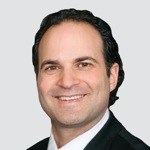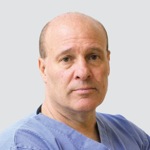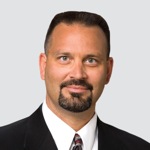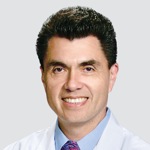
Welcome to Part 2 of On the Spot: Practice Patterns. While the original column highlighted issues in private versus employed versus academic practice, the focus has expanded to include other aspects of practice—acquisition of patients in different practice settings, the challenge of sustaining your private practice, and the growth of ancillary service offerings as a means to survive financially. Part 1 appeared in the November 2019 issue, and can be found online at www.generalsurgerynews.com. We are happy to bring you Part 2 with the same participants!

Read on, take a side, access On the Spot online, and share your view with a comment. Feel free to send me any ideas for column topics at colleen@cmhadvisors.com. Happy reading!
—Colleen Hutchinson
Colleen Hutchinson is a medical communications consultant at CMH Media, based in Philadelphia. She can be reached at colleen@cmhadvisors.com.
| E X P E R T P A N E L | |
|---|---|
 | Professor of surgery, chief of the Division of Bariatric, Foregut and GI Surgery at Stony Brook University, Stony Brook, N.Y. She is president of SAGES, but her answers reflect her own personal opinions. Disclosure: Baronova, Ethicon, Gore, Medtronic, Merck, Obalon and Stryker. |
 | Director of bariatric surgery at Western Connecticut Health Network, in Danbury; section chief of general surgery at Norwalk Hospital and Fairfield County Bariatrics, both in Norwalk, Conn., specializing in laparoscopic bariatric and foregut surgery. |
 | Assistant professor of surgery and chief of the Division of Bariatric Surgery at University of Tennessee Health Science Center in Memphis. |
 | Clinical associate professor of surgery at the University of Illinois at Chicago; section chief of metabolic surgery at Advocate Illinois Masonic Hospital; past chair of ASMBS Private Practice Committee; and president of the ASMBS ThePOWER Foundation. |
 | Professor of surgery at University at Buffalo, N.Y.; surgeon at Jackson North Medical Center in Miami. Dr. Zundel also serves as a consultant to the Minimally Invasive and Bariatric Surgery of Fundacion program in Santa Fe de Bogota, Colombia. |
 | Professor and chief of general and bariatric surgery at East Carolina University, Greenville, N.C., and current president of the American Society for Metabolic and Bariatric Surgery. |
 | MIS/bariatric fellowship director at Gundersen Health System in La Crosse, Wis. Disclosure: Speaker for Gore; proctor for Ethicon/Torax; consultant to Lexington Medical. |
 | Medical director of the bariatric surgery program at CHI Memorial Hospital in Chattanooga, Tenn.; past president of ASMBS. |
 | Director of the Greater Baltimore Medical Center’s comprehensive obesity management program in Towson, Md. |
 | Bariatric surgeon in private practice in New York City. Disclosure: Honoraria for consulting for Allurion and Obalon. |
Hospital-employed physicians acquire patients more easily than private practice ones.
Dr. Pryor: Agree Hospital-employed physicians are hired and supported by hospitals. These hospitals will help to assure that referral systems and marketing are in place to keep them successful. Private practice can be just as busy, but will often require more time and effort on the part of the physician to develop referral networks.
Dr. Zundel: Agree The problem is that in the end, in the hospital-based system, they do not end up being “your” patients as they are in private practice. More volume, but less “your” patients.
Dr. Kurian: On the fence While there is a built-in referral network within a hospital practice, the same could be said for private surgeons and their referrals in the community. Marketing dollars, however, can impact self-referrals, and usually a hospital system has more money for that purpose. A private practice surgeon has the ability to provide more personalized care, since we are not bound by a number of patients that have to be seen per hour per day.
Dr. Lutfi: Agree, but the question is a bit tricky. I do agree that in private practice, providers must work for every referral. Every lead requires a form of investment, which may be financial (marketing, website leads, pay per click), may be physical (making the effort to visit referring physicians), or may be a time commitment (for events such as grand rounds, community functions and so forth).
For employed physicians by universities (academic practice), patients will mostly come seeking treatment at the institution instead of coming for the particular surgeon. Well-known universities have waiting lists to see the surgeon, and those providers never have to worry about volume.
As for the other form of employment (hospital employment), the same effort (marketing, referral network, website management) is required to grow practices, but the institution and not the surgeon usually does this. This peace of mind is considered an advantage for the employed surgeons, but is not always the case. When the practice does not grow, and volume becomes an issue, the surgeon cannot do much to alter the reality. Big institutions can have complex pathways and inefficient bureaucracies that control business development, which could cause frustration for surgeons and at times closure of service lines if the C suite is not qualified or if the hospital is not doing well.
Dr. DeMaria: Agree Hospital-employed physicians have a system behind them to attract and direct patients to them, whereas private practice physicians are dependent on their own initiatives, including marketing and developing supportive referral relationships.
Dr. Weaver: Agree, at least within certain parameters. I think that for surgeons just starting to build a practice, being employed by a hospital system means having an automatic referral base, as long as there are also many other employed physicians in primary care and other specialties that commonly refer patients. In the long term, however, I don’t think being employed matters as much as building a reputation for good patient care, especially if the market area and insurance coverage allow patients to have a choice in selecting their surgeon.
Dr. Ponce: On the fence Even though the trend of significant hospital support to their employed physicians is growing, there are still private practitioners that have embraced great quality, affordable care and strategic marketing that allows them to get more patients than some of the passive employed physicians. Of course, we have to acknowledge that hospitals have the opportunity to leverage their own referrals among their employed primary care physicians, and can have access to local community marketing that, if used appropriately, can enhance patient acquisition. The lack of hospital help to a particular private practice can put them at a significant disadvantage and can potentially put them out of business or rob them of the ability to compete with real dollars and name.
Dr. Dovec: DISAgree Volume is obtained by having that secret sauce. Ninety-five percent of patients come through word-of-mouth referrals. Patients don’t know or care how you get paid.
Dr. Kothari: Agree One advantage of being a hospital-employed physician is you have a built-in referral network. Many employed physicians and surgeons are busy starting on day 1 of their practice. There is often less need to “beat the bushes” than in the private sector to get name recognition and appropriate referrals. However, even in a hospital-employed model, there can be longstanding referral patterns that are ingrained based on seniority and reputation that must be dealt with.
Dr. Floch: Agree As a private practice surgeon and director of a network bariatric program, employed physicians have the advantage of a built-in referral program that feeds their surgery volume. Little effort needs to be performed by individual surgeons outside of their programs to keep them functioning. Whether hospital-employed or private practice, all programs benefit from promotional activities such as events, participation in social media and all methods of paid advertising. The cost of promotion has become too expensive for most private practices.
Making it in private practice will be very difficult in the near future.
Dr. Kothari: Agree I have tremendous respect for all physicians and surgeons in private practice. Every decade, it gets harder and harder to be successful in that environment. It will certainly be more difficult as government regulations regarding reimbursement and the financial burden of an electronic health record [system] make it more difficult for private practice to not only survive, but to thrive in the years to come.
Dr. Weaver: On the fence Even though I am a hospital-employed/academic hybrid surgeon, I hope that many bariatric surgeons are able to maintain autonomy in their own private practices and continue to come up with innovative ways to generate business and income. It will not be easy, but I hope that private practice bariatric surgery thrives in the future. The American Society for Metabolic and Bariatric Surgery Private Practice Committee is dedicated to helping and advancing private practice bariatric surgery, and ensuring their success in the years to come.
Dr. DeMaria: Agree The financial burdens for private practice doctors have grown significantly, making the short-term picture challenging.
Dr. Lutfi: Agree But those who do make it will be positioned very well! It is still worth the fight. Even if we go as extreme as single payor or “Medicare for all,” I still believe that in the United States, many would not want to wait their turn in getting health care, even for non-urgent illnesses. This, I predict, would work even better for those who can stand out with superior delivery of care and patient satisfaction.
Dr. Dovec: On the fence Surviving on the professional fee alone would make it difficult to be successful. However, there are several other revenue streams and creative hybrid models that can still allow a private practice model to be lucrative.
Dr. Floch: Agree, absolutely and passionately. The government has directed incentives that have encouraged the elimination of private practice in the United States. Payment methods are moving toward only reimbursing large hospital systems or medical systems. Methods such as implementation of the Affordable Care Act, [electronic health record] implementation, elimination of out-of-network payments, inability to negotiate by smaller practices, and reduced payments at outpatient surgery centers compared with hospitals have all contributed to pay reduction to private practice physicians. The coordinated effort by insurance companies and the government aims to eventually eliminate most private practices in the United States.
Dr. Kurian: On the fence It is hard in private practice for everyone, but especially solo practitioners. If you can find someone to share overhead costs with or create a larger multispecialty group, then private practice has much better odds.
Dr. Ponce: Agree For the most part, private practices are becoming isolated and more rare in certain locations; they have a significant disadvantage to compete with hospital resources; and the increased spending in compliance, medical records, quality, etc., will be difficult to absorb for the majority of private practices and will become extremely difficult for them to survive. Private practice will never disappear, but the majority will have a more difficult time in the future as we have seen with the present trends.
Dr. Zundel: On the fence Yes, regarding the way they are structured today. In the future, private practices will be bought and belong to a third party. Then surgeons will be only employees of that third party.
Dr. Pryor: Agree As more and more of our referring physicians become hospital- or system-affiliated, their referral patterns are likely to change in support of their new partnerships. In addition, systems can often more effectively negotiate for better reimbursement. Unaffiliated practices may find it difficult to maintain volume and financial viability.
Dr. Pryor: Agree As more and more of our referring physicians become hospital- or system-affiliated, their referral patterns are likely to change in support of their new partnerships. In addition, systems can often more effectively negotiate for better reimbursement. Unaffiliated practices may find it difficult to maintain volume and financial viability.
Regarding the last statement, those who do survive the next few years in private practice will be well positioned and will do very well.
Dr. Lutfi: Agree Heck yeah!
Dr. DeMaria: On the fence I would like to believe that private practice will make a comeback as these physicians have more autonomy in decision making, which can lead to a much more satisfying practice experience.
Dr. Floch: DISAgree Unless laws change, it will be difficult and/or impossible to survive in private practice unless the practice is 1) cash-based, 2) located in a state or region that has significant out-of-network patients and laws to allow this option, 3) a practice that has a high volume and acquires income from practice-based procedures, or 4) has individuals who have partial ownership of outpatient surgical centers and acquires income from procedures performed at these surgery centers.
Dr. Dovec: On the fence Predicting the future financial climate is impossible. There are so many variables in determining long-term success.
Dr. Zundel: DISAgree With time, even if they do well now, when bought by that third party, they will either be replaced for cheaper ones or their income/salary will decrease.
Dr. Ponce: On the fence Natural selection will allow the strongest and more efficient private practitioners to survive, but I’m not sure for how long. This trend of hospital-employed model continues to grow, and I would assume that the reasons why this is happening will continue to become more defined and motivate practices to eventually join the hospital. Also, we have to consider that the great majority of younger surgeons are hospital-employed versus older surgeons, so as our private practitioners get older, they will slowly be exiting their careers and very little replacement will be available to keep it sustainable.
Dr. Kurian: Agree However, I may be wishful about this. I think patients and other private practitioners will want to refer patients to those who take care of the patient best, and private practice may be less constrained than a hospital-based practice. As we see bundled payments come more into play, this will impact who sees the financial upside of this system and how successful private practitioners will remain.
Dr. Weaver: Agree I think that surviving, and even flourishing, in private practice will come as a result of wise business practices, strategic business developments, innovations in our field, and most importantly, outstanding patient care. I look forward to seeing our private practice colleagues exceed expectations and continue to have incredibly successful practices.
Dr. Pryor: DISAgree As health care reform continues, payors are looking for ways to streamline costs. Bundled payments are likely in our future, and many of the systems to support this are likely to sit in larger networks. Private practitioners will at a minimum need to create solid affiliations to compete in these markets.
Dr. Kothari: On the fence In regions of the country where fee-for-service is the norm, private practice should continue to do well. However, capitation, fee-for-value, bundled payments and other alternative payment models are being explored, and therefore it remains to be seen whether these will ultimately financially impact surgeons in private practice more than hospital-employed surgeons. In addition, trying to predict which model of reimbursement will win out is like trying to predict what tax bracket one would be in upon retirement. It is anybody’s guess.
Offering ancillary services is the solution for private practice financial survival.
Dr. DeMaria: DISAgree While ancillary services can be a financial positive, the revenue generated may not be sufficient to compensate for the difficulties of a struggling practice.
Dr. Ponce: On the fence Offering ancillary services can be a financial incentive, but it also creates a different set of issues and overhead work. I do think, though, that the trend of sustainability requires one to think outside the box, and there will be a need to offer ancillary services and other office-based procedures that creates a mechanism for financial sustenance for the future. Not necessarily the solution to the problem, but [it] can be a big help to stay in business if it is done correctly.
Dr. Lutfi: Agree with the benefit of adding ancillary services, disagree with it being the solution. When you look at the problem with sustainability of private practice, it is mainly financial.
Simple math: Income = Collection – Overhead.
Today, we have decreasing reimbursement with increasing overhead. To maintain income, we’ve got to control at least one of the two variables. Overhead can be controlled with smarter business management, but drastic decrease is getting harder (increased wages, having to offer benefits, increasing malpractice). Collection in the form of professional fees will not get better anytime soon; if anything, it will continue to decline. We cannot work many more hours (physician burnout, lifestyle, etc.).
So, the only true meaningful opportunity to increase income is by adding new sources of revenue. This can be achieved by different means, such as ancillary staff; physician extenders in a busy practice can generate and top their salary easily when you add billing for OR assistance and extra clinic visits. In-office procedures are another excellent source of additional income, especially for busy practitioners.
This is especially true in bariatric surgery with different testing (sleep study, transnasal endoscopy, vitamins, labs and other tests). Providers should be careful calculating the return on investment [ROI] for each test. ROI depends on the initial investment cost (purchase and maintenance), reimbursement and the expected volume for usage. Volume tends to be the determining factor of profitability.
Optimizing practice revenue through efficiency and a diverse portfolio (professional, technical, facility fees) helps keep positive and healthy finances.
Dr. Kurian: Agree Maximizing services per patient helps solidify the bottom line for any practice. Ancillary services are an important adjunct, but excellent care is really the cornerstone of a private practice’s financial survival.
Dr. Kothari: On the fence Offering ancillary services in private practice may have a financial upside to those in private practice, but should only be offered if there is a true clinical benefit to the patient.
Dr. Dovec: Agree The halo effect of bariatric surgery is incredible.
Dr. Floch: On the fence Ancillary services are an expense to maintain and do increase income but necessitate administrative oversight, upkeep and advertising to develop and promote. There must be significant development to acquire income that boosts overall salary enough to overcome increasing overhead costs. This is unlikely in most private practices.
Dr. Zundel: Agree Not the solution, but [it] will help financially.
Dr. Weaver: Agree I think offering ancillary services will be one of the solutions, and will prove to be foundational for continued financial success of our private practice surgeons.
Dr. Pryor: On the fence Ancillary services are one way to diversify a practice, but in today’s health care market, they may not be the clear solution. Insurers are constantly looking for ways to cut corners or add exclusions, and these adjuncts may end up costing more than they bring in.




Please log in to post a comment